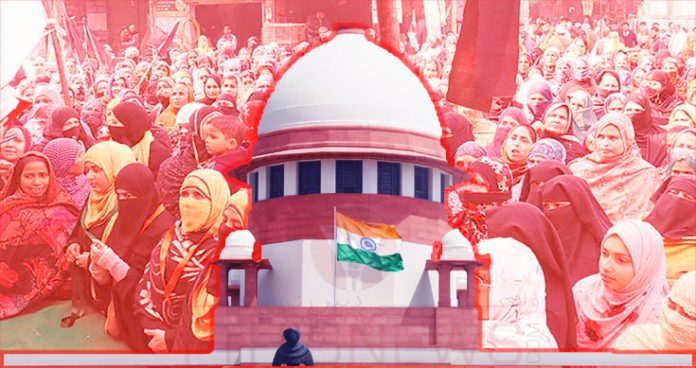New Delhi: The Supreme Court on Wednesday stated it can’t allow that an indeterminable number of individuals can gather at whatever point they decide to dissent, and referred to the differentiation between the way of dissent against colonial rule and the expression of dissent in a democratic framework.
A bench involving Justices Sanjay Kishan Kaul, Krishna Murari and Aniruddha Bose said India follows its establishment back to when the seeds of protest during our freedom battle were planted deep, to eventually flower into a democracy.
The top court stated: “What must be retained in mind, however, is that the erstwhile mode and manner of dissent against colonial rule cannot be equated with dissent in a self-ruled democracy.”
The bench saw that the nation’s constitutional plan accompanies the right to dissent and express dissent, however with an obligation towards specific duties, as Article 19, one of the foundations of the Constitution, gives upon residents two prized rights, i.e., the privilege to the right to speak freely and expression under Article 19 1a and the option to assemble calmly without arms under Article 19 1b.
The top court included: “These rights, in cohesion, enable every citizen to assemble peacefully and protest against the actions or inactions of the State. The same must be respected and encouraged by the State, for the power of a democracy such as ours lies in the same”.
Supreme Court bench said it can’t accept an indeterminable number of individuals who can amass at whatever point they decide to dissent. The bench additionally referred to Pulitzer Prize winner American political analyst Walter Lippmann, who stated: “In a majority rule government, the resistance isn’t just endured as protected, however, should be kept up in light of the fact that it is indispensable.
Stressing that dissenters can’t obstruct public streets and cause grave trouble to workers, the bench stated: “We have to make it unequivocally clear that public ways and public spaces cannot be occupied in such a manner and that too indefinitely. Democracy and dissent go hand in hand, but then the demonstrations expressing dissent have to be in designated places alone.”
Referring to the absence of activity of specialists concerned, the bench said the courts settle the legality of the activities and are not intended to offer a shoulder to the administration to fire their weapons from.
The bench stated: “Unfortunately, despite a lapse of a considerable period of time, there was neither any negotiations nor any action by the administration, thus warranting our intervention”.
The decision came on the appeal registered by advocate Amit Sahni that the people opposing the Citizenship Amendment Act and the National Register of Citizens, had taken up a strategy of protest which brought about the closure of the Kalindi Kunj Shaheen Bagh stretch, including the Okhla underpass from December 15, 2019. The petitioners looked for direction to be given to clear public streets.


